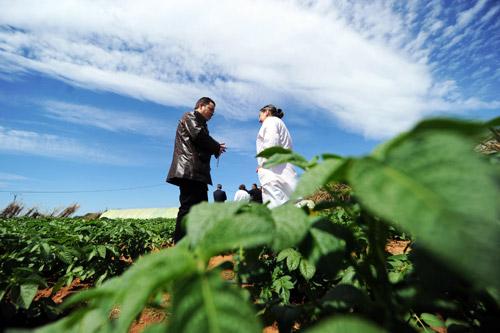SwitchMed: incubated civil society initiatives in focus

The EU-funded SwitchMed project has added a new section to its website, highlighting selected grassroots initiatives in Algeria, Lebanon, Morocco and Tunisia.
The new section provides information on the two initiatives selected per country, which are currently receiving support from SwitchMed. This includes the development of a “support plan” for their initiative, regular coaching sessions for six months to support the implementation of the initiative, external technical support, the opportunity to become a member of the Switchers community, and support for the development of a crowd-funding campaign.
In Algeria, Abdelmadjid Arfa and his partners of the TORBA collective have launched an agro-ecological and educational farm for the promotion of sustainable agriculture, while Mohamed Ouchene seeks to reduce the pollution caused by the olive industry in the Aghbalou region.
In Morocco, members of Terre et Humanisme-Maroc have launched the initiative Crossroads of Agroecological Initiatives and Practices (CIPA), while Taxi Social, led by Abdelkrim Boughoud from the Douiret Sbaa Association for Local Development, has hired a van to facilitate the mobility of nearly 50 families living in an isolated area.
In Lebanon, Jad and Chadi, with the support of a group of volunteers, are working to map Beirut routes through collective action within their Bus Map Project. The other initiative, Youth for Environment – Upcycling initiative in Baalbeck, aims at giving a second life to waste.
In Tunisia, Adnen Ben Haji and two other partners created a social “co-working space” incubator and a bicycle delivery company called Pedalo. The other initiative, led by De Terre et D’Argile, aims to promote collective social and eco-innovation through sustainable building.
The SwitchMed sustainable consumption and production programme aims to promote a switch by the Mediterranean economies towards sustainable consumption and production patterns and green economy, including low-emission development, through demonstration and dissemination of methods that improve resource and energy efficiency. It also seeks to minimise the environmental impacts associated with the life cycle of products and services and, where possible, to promote renewable energy.
Read more
SwitchMed: stories of our incubated civil society initatives




























 Syria
Syria 





